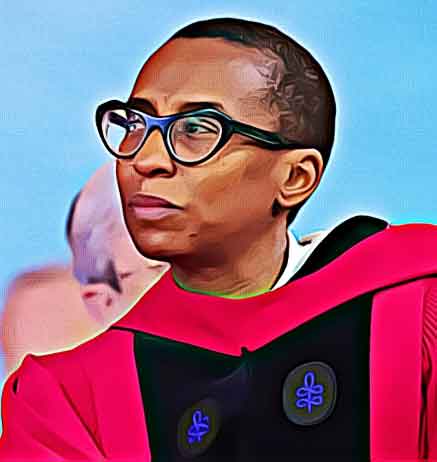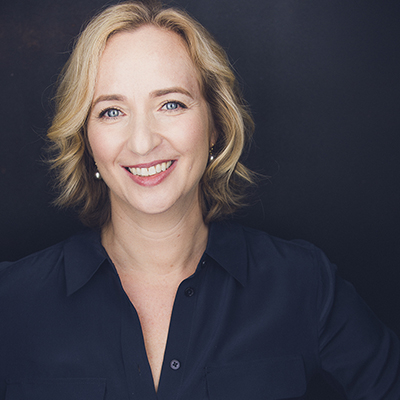
Regardless of your perspective, Harvard looks bad right now — and that's good for America.
The resignation of Claudine Gay as president has brought the university unwanted attention for lacking both academic standards and moral clarity. She made mistakes, but in many ways Harvard set her up to fail. Like all of America's top universities, Harvard has taken on an unhealthy role in the U.S. economy and society. America's best universities need to return to their original mission: producing academic excellence, not just signaling it.
These schools have used their reputations for excellence to form an oligopoly with outsized power. An Ivy League degree, or even just attendance at an Ivy League school, conveys a powerful signal that this person is among the smartest and best-connected this nation has to offer.
Signaling is a powerful economic idea. When you enter an economic transaction, such as hiring a recent graduate, you don't always have complete information. Will they be smart, productive, collegial? How do you know? You look for certain signals.
There is a debate in economics about whether college has any economic value — does it teach valuable skills? — or is just a signal that this person had the discipline and maturity to sit through four years of classes. Going to an elite school always signaled something extra: unusual brilliance, perhaps, or just good connections. Either way, the degree saved employers the time and energy it would have taken to screen for these characteristics.
The signal was always imperfect, but in the last few decades it became both more valuable and less accurate. When fewer Americans went to college, getting into a top school was hard but not impossible. Three decades ago, Harvard accepted 10% to 15% of all applicants. Now its acceptance rate is less than 4%. As the population grew — both in general and of applicants — competition for the few spots at an elite university intensified. Add a superstar economy that bestowed extreme riches on a few people who went to the right schools, often in the Ivy League, and the signal became more valuable still.
It did not matter that going to Harvard or Yale did not guarantee financial success, much less happiness. Having that name on your resume was what counted. The signal was also valuable socially, for networking or dating.
The result was that many students and their parents felt tremendous pressure to do whatever it took to go to an elite university, rather than spend time to find a school that offered a rewarding experience and a good education. It is no wonder that elite schools don't sound like such fun places or that their students have such high rates of anxiety.
This power to signal elitism also proved toxic for the universities themselves. A concentration of market power tends to result in less innovation, more waste and greater distortions. So it was with the Ivy League: Intoxicated by the idea that they were shaping the elite of America, these schools increasingly saw themselves not as educational institutions but as organizers of a vast social project. They were not completely wrong — but it was a social project with little accountability. Other countries also have elite universities and a superstar economies, and they have their issues too, but their admissions criteria remain more exam-based and less arbitrary, with less room for corruption.
None of this, by the way, is an argument against so-called "diversity, equity and inclusion" initiatives, known as DEI. In theory at least, DEI is a well-intentioned attempt to offer the valuable signal to more a diverse and deserving population. But an unaccountable oligopoly is especially ill-suited to allocating prestige and wealth, and DEI has helped make universities less focused on academic excellence. Universities should be more committed to free speech and diverse thinking. But that will require a breakup of the oligopoly that controls the path to elite power in America.
Harvard's troubles are in the spotlight at the moment, but the market failure belongs to the entire system of elite higher education. The last few months have made it plain: The elite degree, and the signal it sends, is neither as accurate nor as valuable as the Ivy League would like you to think.
Reducing market power is never easy, but the U.S. has to find some way to make its elite schools less important. This initiative shouldn't come from the government — politics could make the problem worse. Maybe what has been revealed in the last few months can diminish the value of the signal. The US has so many impressive universities full of talented students and professors. If employers were less impressed with Ivy League credentials, and hired more of the top graduates of America's flagship public universities, they would be rewarded with a better and more diverse staff. Parents and prospective applicants, too, should be more concerned with finding the best education instead of the most prestigious degree.
Only when that happens can Harvard become great again.
(COMMENT, BELOW)
Allison Schrager, a Bloomberg columnist, is a senior fellow at the Manhattan Institute and a contributing editor of City Journal.
Previously:
• America is no longer raising a nation of risk-takers
• Private equity won't diversify your portfolio
• The era of declining interest rates may have come to an end, and many investors don't seem to realize it
• This one weird trick could save the U.S. economy
• The Fed's damage to the housing market may last years
• The future of unions looks very different
• To bring back the office, bring back lunch
• Does it really matter who gets into Harvard?
• Our pensions shouldn't be used to juice the economy
• A soft landing won't mean the economy is safe
• The 30-year mortgage is saving the U.S. economy … or is it?
• The one true secret to successful investing
• Less work, more burn-out
• When did risk become a bad word in the U.S.?
• AI-proofing your career starts in college
• Biden has to learn the same lesson as SVB
• Say it with Rubio: Changing clocks is stupid
• Sure, we'll return to the office in 2023 but not to stores
• How to manage the biggest risk of all: Uncertainty
• If you think U.S. pensions are safe, just wait
• Harry and Meghan and the perils of superstar culture
• Norman Rockwell's economy is never coming back
• Burned by crypto? Don't learn the wrong lesson
• Quiet Quitters are looking in the wrong place for meaningful work
• America's MBAs are the latest skeptics of capitalism
• Generation Z is getting a harsh lesson in stock risk
• The biggest threat to the U.S. economy is policymakers
• Buck up, boomers. You're still better off than your parents
• How to manage the biggest risk of all: uncertainty
• Startup boom is the kind of risk-taking Americans need
• Gen Z is too compliant to achieve greatness
• A bigger child tax credit isn't the poverty solution we need
• Finding your power in a higher-priced world
• The Biden administration's plans to double the tax rate on capital gains will prove costly to all Americans, not just the wealthy
• WARNING: Feel Good Now --- Pay Later: Stimulus is crammed with goodies but makes no economic sense
• The 'Stakeholder' Fallacy: Joe Biden's vision of capitalism is a recipe for failure


 Contact The Editor
Contact The Editor
 Articles By This Author
Articles By This Author